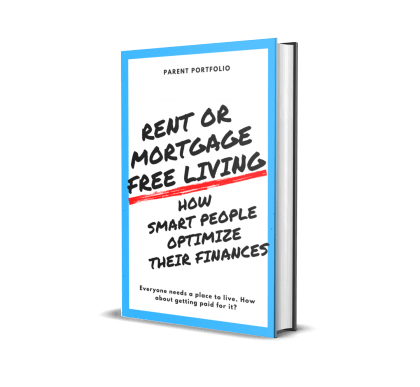Why Refinancing Your Mortgage Isn’t Always the Best Option

Not every financial move makes sense, and this includes refinancing. Refinancing could be the right move for you, or it could be the wrong move. Let’s start by first looking at some of the downsides of refinancing your mortgage before expanding on the upside!
Downsides of Refinancing:
1. Break-Even Point
Brian Scott, a senior loan consultant outside of Washington, D.C., put it this way, “The downside of refinancing would be the equity you give up to pay the closing costs and the potential term resetting.”
Scott elaborates that while it is typically advantageous to refinance, you want to make sure you can recoup your closing costs in at least a five-year window. Put another way, the purpose of refinancing is to save money, not to lose it.
To assess whether refinancing will help you save, you must assess your “Break-Even Point.” Then, using a break-even calculator, the goal is to see how long it will take to recoup your closing costs.
As a general rule of thumb, if you can’t recoup your closing costs within five years or you plan to move very shortly, refinancing might not be worth it! Saving half a point might not be worth it in the long run!
2. Loan Terms:
Your loan terms matter.
Perhaps one of the biggest downsides of refinancing is the resetting of loan terms. However, the truth about refinancing that many fail to recognize is the amortization schedule of a mortgage.
At the start of new mortgage terms, a new amortization schedule kicks in. The downside of a newly amortized loan is that the payments go to interest first, principal second.
For example, if you’re 5 years into a 30-year mortgage, refinancing would mean you start all over again in your amortization schedule.
This may or may not be negative; it just depends on how far along you are with your existing mortgage.
3. If you plan on moving soon.
While it might be advantageous to refinance because of better loan rates and the ability to save money each month regarding your payment, it doesn’t always make sense if you plan on moving in the next few years.
Going back to the initial premise of refinancing and whether it is worth it – the ability to recoup your costs is factor number 1; this typically takes time (a few years).
It doesn’t make sense to refinance if you plan on moving within the next few years. There isn’t enough time to recoup the costs even if you lock in a new mortgage at a rate that is a point better.
The Upside to Refinancing Your Mortgage
Knowing the downsides of refinancing doesn’t mean it’s a bad idea. In fact, depending on your personal circumstances and needs, refinancing might be a great idea… as long as you can benefit from the following:
1. You Save
With all the talk about not recouping your closing costs when it comes to refinancing your mortgage, if you intend to stay in your home for 4-5 years plus and you can recoup the fees, in that case refinancing is worth it.
Once you meet your break-even point after refinancing, every payment after this is now saving you money. Saving when it comes to refinancing typically means you’re saving:
- Monthly, due to a lower monthly payment.
- Overall, due to a lower % rate (thus paying less in interest)
- The ability to cancel PMI (property mortgage insurance)
If you can save, it’s worth it.
2. Shorten Your Term
A positive to refinancing is you can lock in a low rate with a shorter term, like the hot 15-year loan option.
When you stretch out your mortgage payment over thirty years, what you’re inevitably doing is paying more in interest. Use an amortization calculator and do the math, and you will quickly find that a $300,000 home doesn’t cost $300,000… over 30 years; it will far exceed $500,000 in total payments (because of interest).
However, refinancing to a lower interest rate and shortening your loan terms might eat up some of your cash flow, but over the life of your loan, you will typically save 50% in interest when comparing a 15-year term to a 30-year term.
3. A Better Mortgage Rate
The obvious reason for refinancing is the savings a homeowner receives from their newly lowered interest rate. Brian from earlier said it this way,
“It’s not a bad idea to refinance if you can reduce your interest rate to a point where it benefits and pays for itself in the long run.”
Typically, this means shaving off at least one percentage point off your mortgage to make the process of refinancing, paying for closing costs, and more worth it!
4. Get Rid of Mortgage Insurance
Mortgage insurance is costly; however, necessary for some home buyers.
When I purchased my first home in 2010, to make sure I could land funding and make sure the bank would get their money, I had to have mortgage insurance, which came in at $95 a month.
Over a period of five years, that added up to $5,700. If I didn’t refinance, I would pay another $5,700 over the next five years. However, refinancing closing costs were only $3,000 – so right there, I was able to save $2,700.
Not to mention the better rate.
In this scenario, it can be extremely advantageous to refinance to avoid having to pay high PMI.
Final Word
The truth is when it comes to refinancing is that it depends. Therefore, you must consider factors to determine whether or not refinancing is the right move for you or perhaps the wrong move.
Some believe in refinancing their mortgage for a better rate over 30 years so they can pay more towards their mortgage and pay it off early. Others may opt to refinance with a 15-year mortgage to save on interest.
And obviously, for some, it simply doesn’t make sense. But, in my personal case, refinancing in 2016 was a great option. We could save money in all areas, get out from under mortgage insurance, and save 1%.
Other times when it makes sense to refinance is when you have a variable interest rate. In many cases, if you have a variable interest rate, you should heavily consider refinancing to a fixed rate.
So regardless of what you decide to do, it’s best practice to consider all of these factors and meet with a few consultants in the industry who will give you transparent information that is best for you!
Frequently Asked Questions:
Why is refinancing a bad idea?
Refinancing a bad idea can be a bad idea or a good idea; it just depends on your situation. For example, if you can not make up the equity/closing costs for the new loan in a reasonable time, you plan on moving, or you are further along in your amortization, refinancing could be a bad idea for you.
Is refinancing your mortgage a good idea?
It is a good idea to reduce your interest rate to where it benefits, and savings pays for itself. In addition, getting out from under mortgage insurance, avoiding variable interest rates, and locking in new shortened loan terms can make refinancing a great option.
Does your mortgage start over when you refinance?
Yes, your term and amortization do start over. That being said, if you’re only a few years into your current 30-year term, you could look into a shorter term like the 15 or 20-year options!
How much does a 15-year mortgage save?
In short, the 15-year mortgage term costs more monthly than its 30-year counterpart. However, over the entire loan’s life, a 15-year loan will save up to 50% interest charges.






